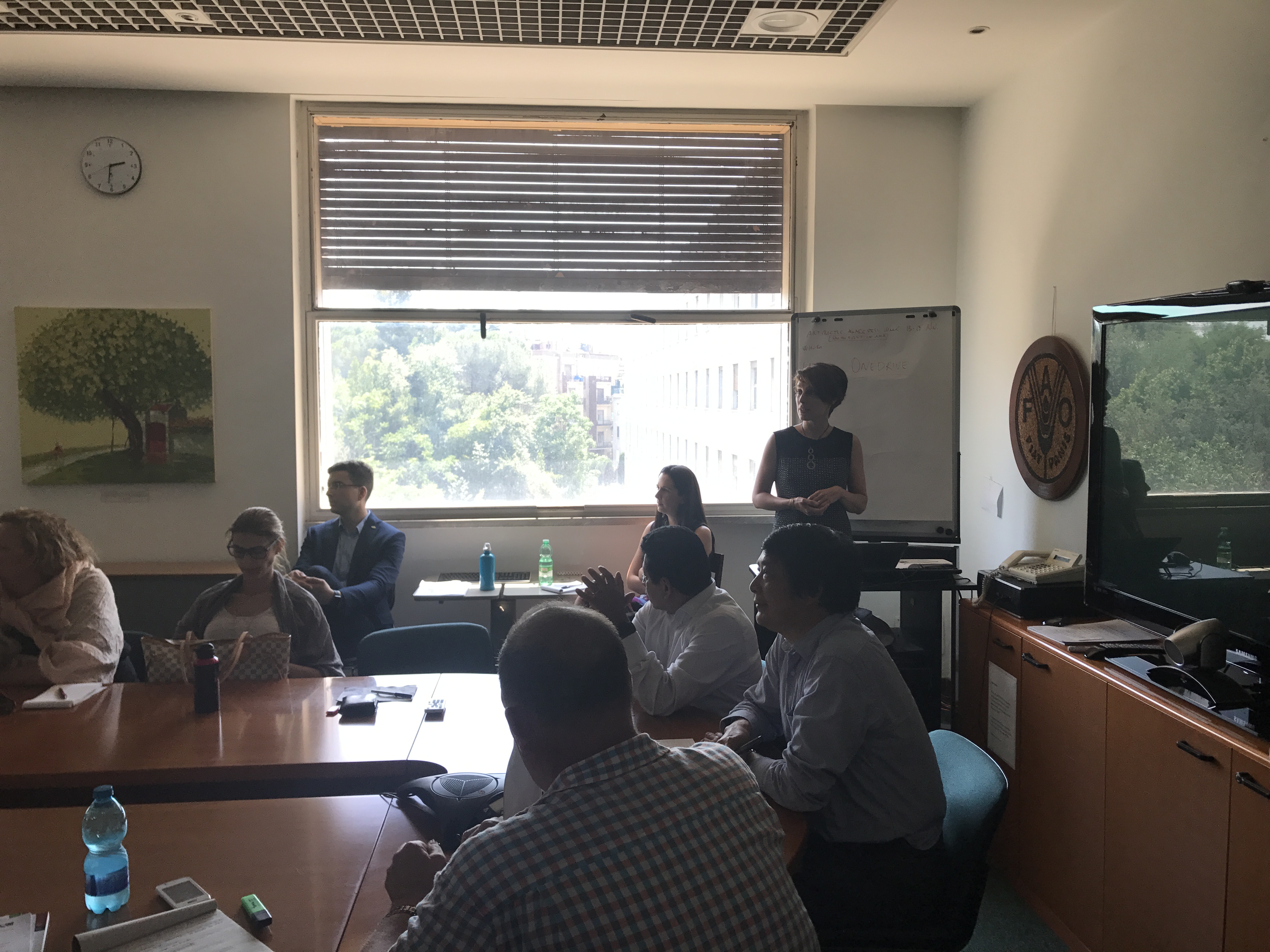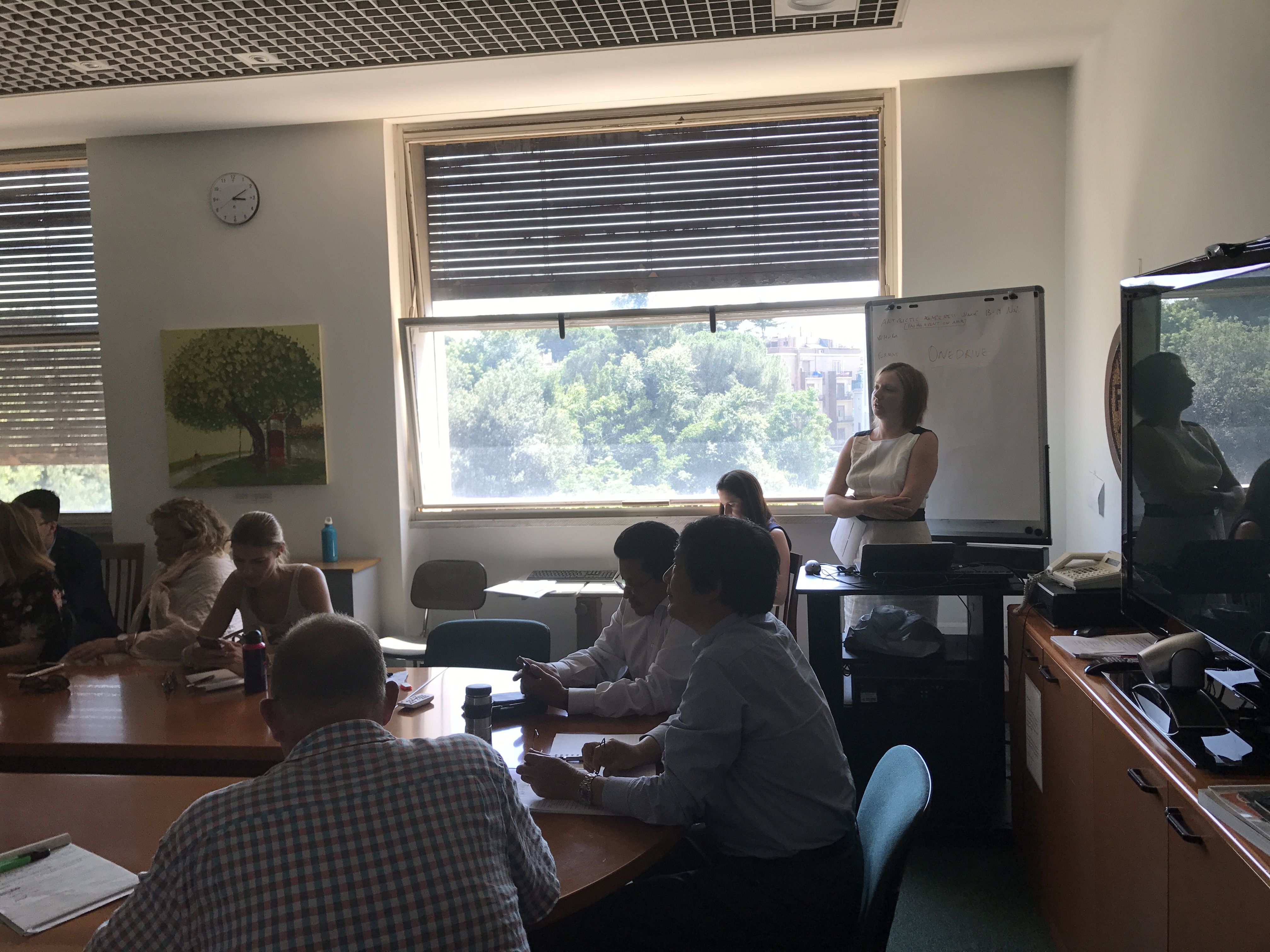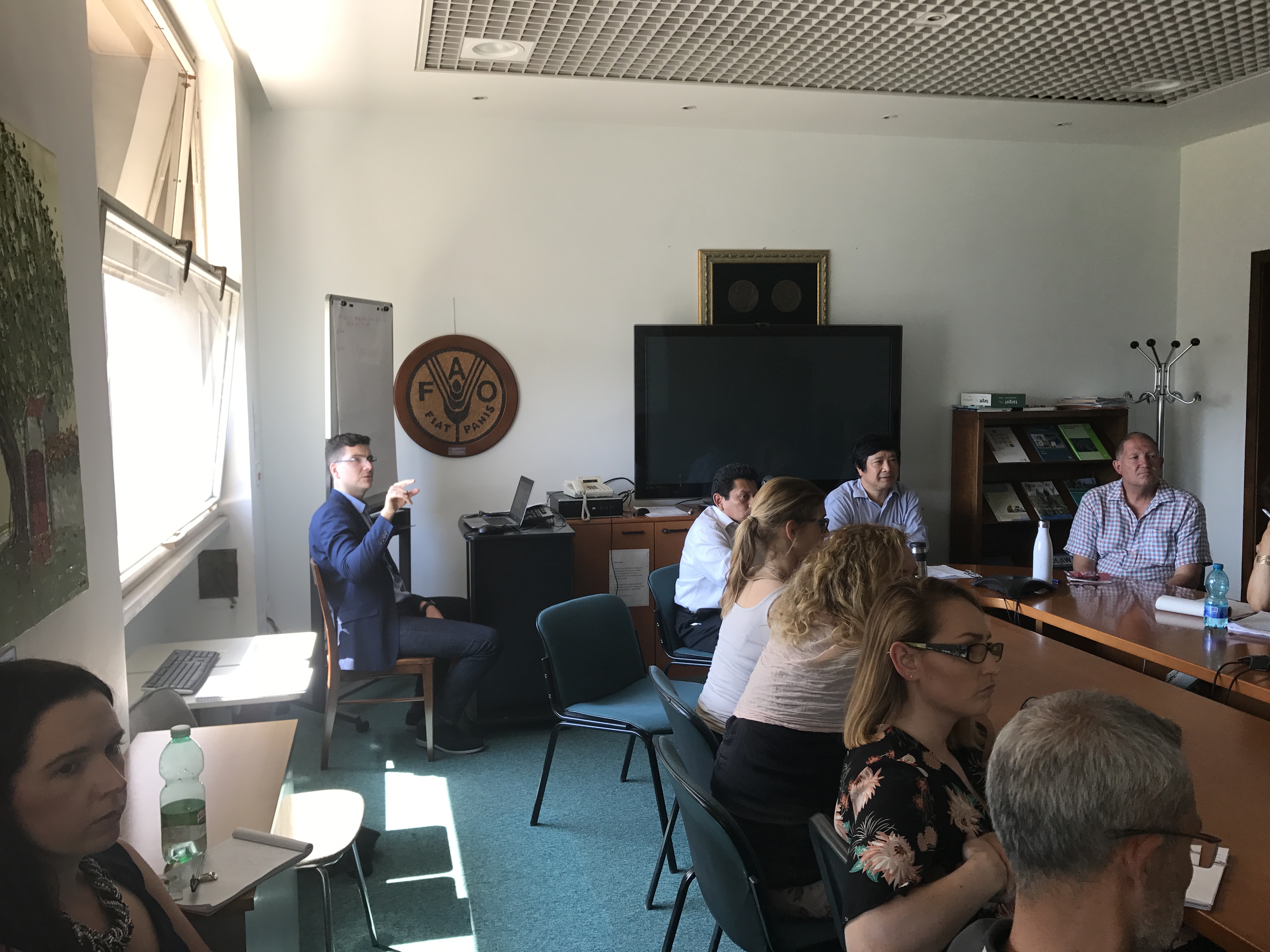The IPPC Secretariat's Brainstorming on Plant Health and Trade Facilitation
Posted on lun, 10 Jul 2017, 08:08
A successful brainstorming session on plant health and trade facilitation was conducted by the IPPC Secretariat on 14 June 2017 in FAO-HQs. This is one of the activities undertaken within the context of 2017 as the IPPC year of Plant Health and Trade Facilitation, in preparation of the International Year of Plant Health (IYPH) in 2020. The main objectives of the brainstorming were to reflect on the importance of plant health for facilitating safe trade, and to collect ideas and information on the topics that will be further addressed at the upcoming IPPC seminars on plant health and trade facilitation. The brainstorming session was chaired by Mr Jingyuan Xia, the IPPC Secretary, and attended by all staff of the IPPC Secretariat.
Five keynote presentations were at the brainstorming: a) on the Trade Facilitation Agreement (TFA) and the IPPC by Craig Fedchock; b) on the Promotion of Standard Setting for Trade Facilitation by Céline Germain; c) on the Promotion of Standard Implementation for Trade Facilitation by Orlando Sosa; d) on the Promotion of Dispute Settlement for Trade Facilitation by Dorota Buzon; and e) on the Promotion of International Cooperation for Trade Facilitation by Marko Benovic. The presentations were followed by an open discussion.
Mr Fedchock presented on the WTO-TFA, which entered into force in February 2017 with the objective to expedite movement, release and clearance of goods, improve cooperation between customs/other authorities, enhance technical assistance and build capacity. He recalled that if NPPOs engage, there is an opportunity to improve and take a whole of government approach to reduce duplication and fill gaps; that many donors are interested in supporting these initiatives, and that the context of trade facilitation offers many opportunities to strengthen trade systems. Finally, he mentioned ePhyto as a good fit to TFA.
Ms Germain focused on the IPPC standards and the WTO SPS agreement, aimed at protecting human, animal, plant life or health and to prevent unnecessary trade barriers. She emphasized that International Standards on Phytosanitary Measures (ISPMs) are science-based and internationally agreed benchmarks that can help create new trade opportunities while safeguarding agriculture and the environment. She further pointed out that 85 out of the 94 adopted ISPMs directly relate to trade (90%).
Mr Sosa confirmed that implementing the IPPC results in facilitating safe trade. He recalled the scope of standards implementation, which includes adherence to IPPC, implementation of rights, obligations and responsibilities outlined in the convention, and implementation of standards and recommendations adopted by the Commission on Phytosanitary Measures. He presented several case studies, including legal support to the Gambia, IPPC s 183rd contracting party; PCE application and support on other obligations to the Comoros; the Integration Review and Support System (IRSS) and capacity development projects in the field.
Ms Buzon presented the Convention s text that relates to the settlement of disputes, highlighting the provision that contracting parties concerned shall consult among themselves as soon as possible with a view to resolving the dispute, and that if the dispute cannot be resolved, the contracting party or parties concerned may request the Director-General of FAO to appoint a committee of experts to consider the question. She highlighted the benefits of the IPPC system, offering a complementary alternative process to WTO for contracting parties, and noted that in general IPPC and its standards can be considered as a dispute avoidance tool.
Mr Benovic outlined the importance of international cooperation for trade facilitation. He showed how free trade agreements are politically more difficult to reach, while trade facilitation seems more politically feasible, and is directly targeting the barriers impeding trade. He also reminded the role of the IPPC in facilitating trade through harmonized standards, enhanced national capacities and targeting specific impediments to trade (e.g. ePhyto initiative).
Finally, Secretary Mr Xia thanked all speakers for their excellent presentation and important contribution in the context of the IPPC year of Plant Health and Trade Facilitation. He urged IPPC community works closely to disseminate the IPPC annual theme for 2017 so as to increase the visibility and impact of the IPPC on facilitating safe and efficient trade as global, regional and national levels.






